MercoPress. South Atlantic News Agency
Tag: Climate change
-
Thursday, November 15th 2018 - 08:19 UTC
Climate change: UK report suggests drastic reduction of sheep and cattle numbers

The number of sheep and cattle in the UK should be reduced by between a fifth and a half to help combat climate change, a report says. The shift is needed, the government’s advisory Committee on Climate Change (CCC) maintains, because beef and lamb produce most greenhouse gases.
-
Monday, November 5th 2018 - 08:22 UTC
CCAMLR fails to protect Southern Ocean

The Commission for the Conservation of Antarctic Marine Living Resources (CCAMLR) has again failed to take action to protect the Southern Ocean, with no progress made on the critical issues of marine protected areas, climate change, and transshipment.
-
Thursday, November 1st 2018 - 08:36 UTC
Ocean temperatures have been warming faster than estimated, shows latest scientific report
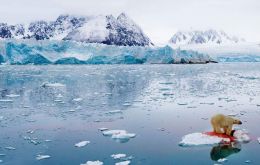
The world’s oceans may be heating up faster than previously thought — meaning the planet could have even less time to avoid catastrophic global warming than predicted just weeks ago by the United Nation’s Intergovernmental Panel on Climate Change.
-
Tuesday, September 25th 2018 - 08:24 UTC
Green mosses of East Antarctica are succumbing to climate change, says scientific paper
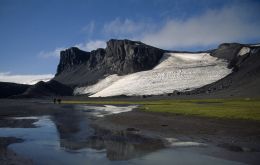
Emerging from the ice for a brief growing season every Antarctic summer, the lush green mosses of East Antarctica are finally succumbing to climate change. That is according to a study of the small, ancient and hardy plants - carried out over more than a decade.
-
Tuesday, September 11th 2018 - 09:29 UTC
El Niño 2018/19 could be a repeat of 2015/16, cautions WMO
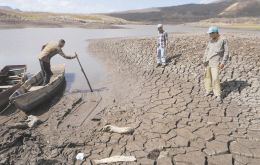
There's a 70% chance of a recurrence of the El Niño weather event before the end of this year, according to the World Meteorological Organization. The last El Niño occurred in 2015-16 and impacted weather patterns around the world, but researchers say they are not expecting this new one to be as intense as 2015-16.
-
Tuesday, July 10th 2018 - 07:29 UTC
Forests and trees are key for a sustainable future

ROME - Time is running out for the world's forests, whose total area is shrinking by the day, warns a new FAO report urging governments to foster an all-inclusive approach to benefit both trees and those who rely on them.
-
Monday, July 9th 2018 - 08:31 UTC
Chinese home insulation blamed for gas emissions damaging the ozone layer

Cut-price Chinese home insulation is being blamed for a massive rise in emissions of a gas, highly damaging to the Earth's protective ozone layer. The Environmental Investigations Agency (EIA) found widespread use of CFC-11 in China, even though the chemical was fully banned back in 2010.
-
Saturday, June 23rd 2018 - 08:54 UTC
Seabirds starving to death because of plastic pollution reveals documentary
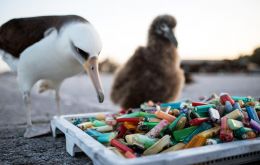
New footage of the devastating impact of plastic pollution on wildlife has been captured by a BBC team. Seabirds are starving to death on the remote Lord Howe Island, a crew filming for the BBC One documentary Drowning in Plastic has revealed. Their stomachs were so full of plastic there was no room for food.
-
Thursday, May 17th 2018 - 08:31 UTC
Someone is cheating with ozone warn scientists: rate of decline has fallen drastically
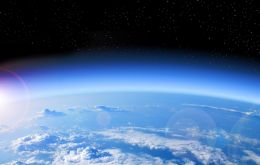
The decline in the atmosphere of an ozone-depleting chemical banned by the Montreal Protocol has recently slowed by half, suggesting a serious violation of the 196-nation treaty, researchers revealed Wednesday.
-
Wednesday, May 16th 2018 - 09:02 UTC
ILO annual report: Climate change combat could create millions of new job opportunities

Its forecast that 24 million new posts “will be created globally by 2030”, contains the caveat that “the right policies to promote a greener economy” must also be in place for this to happen, along with better social safety nets for workers.
